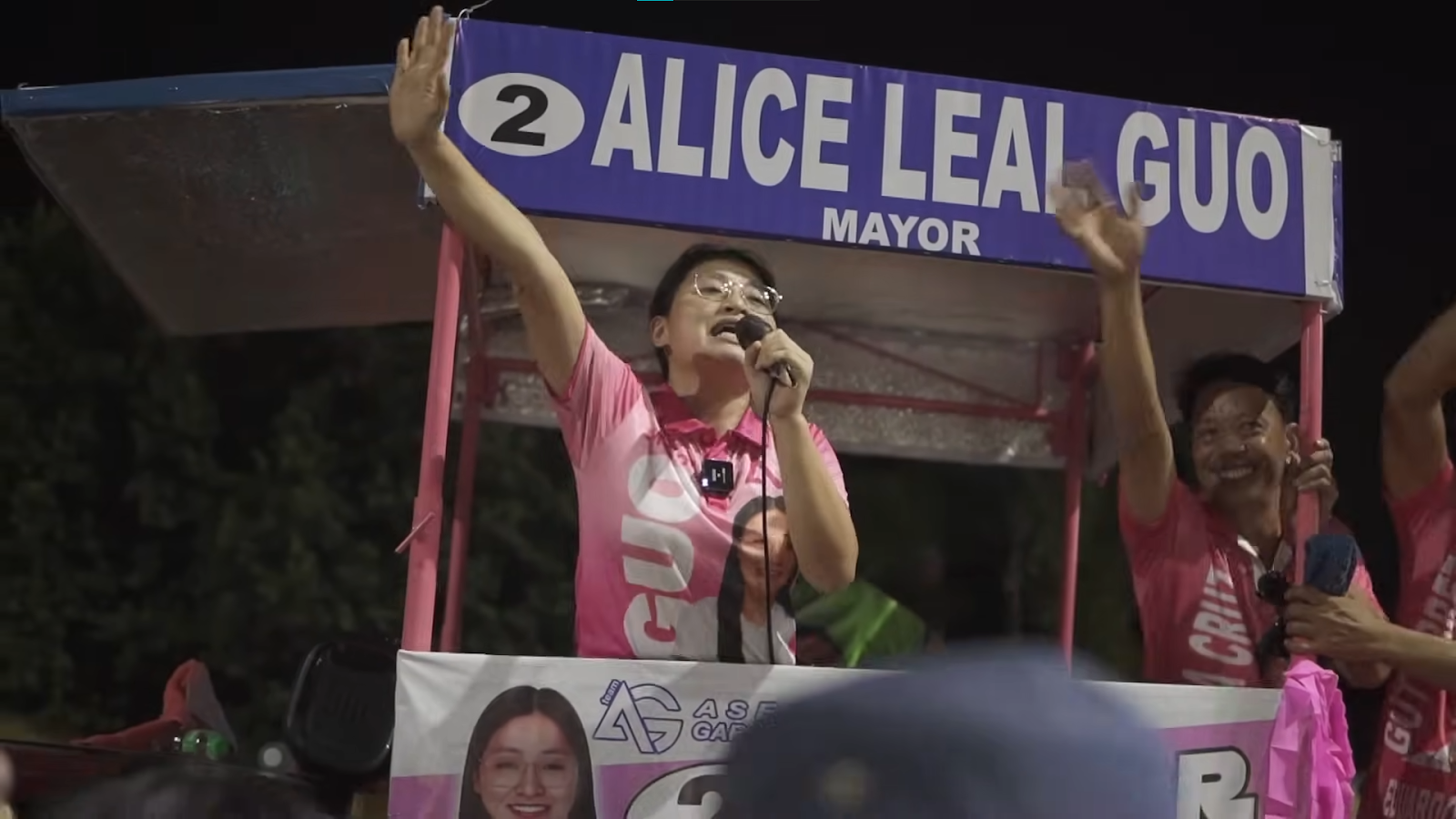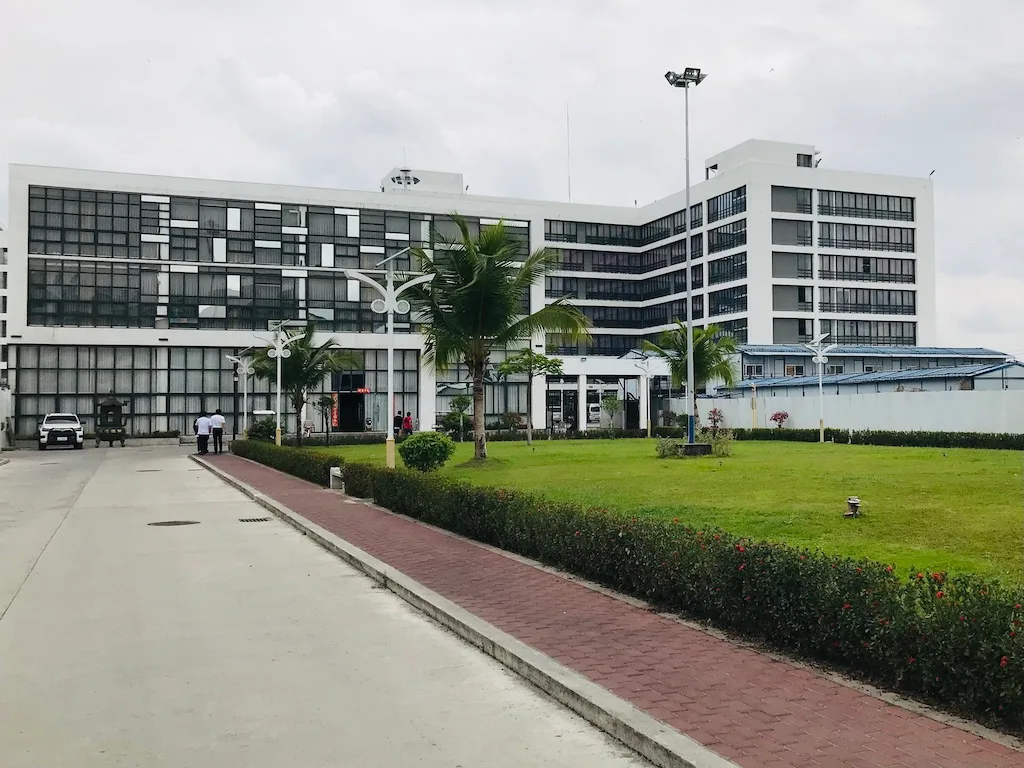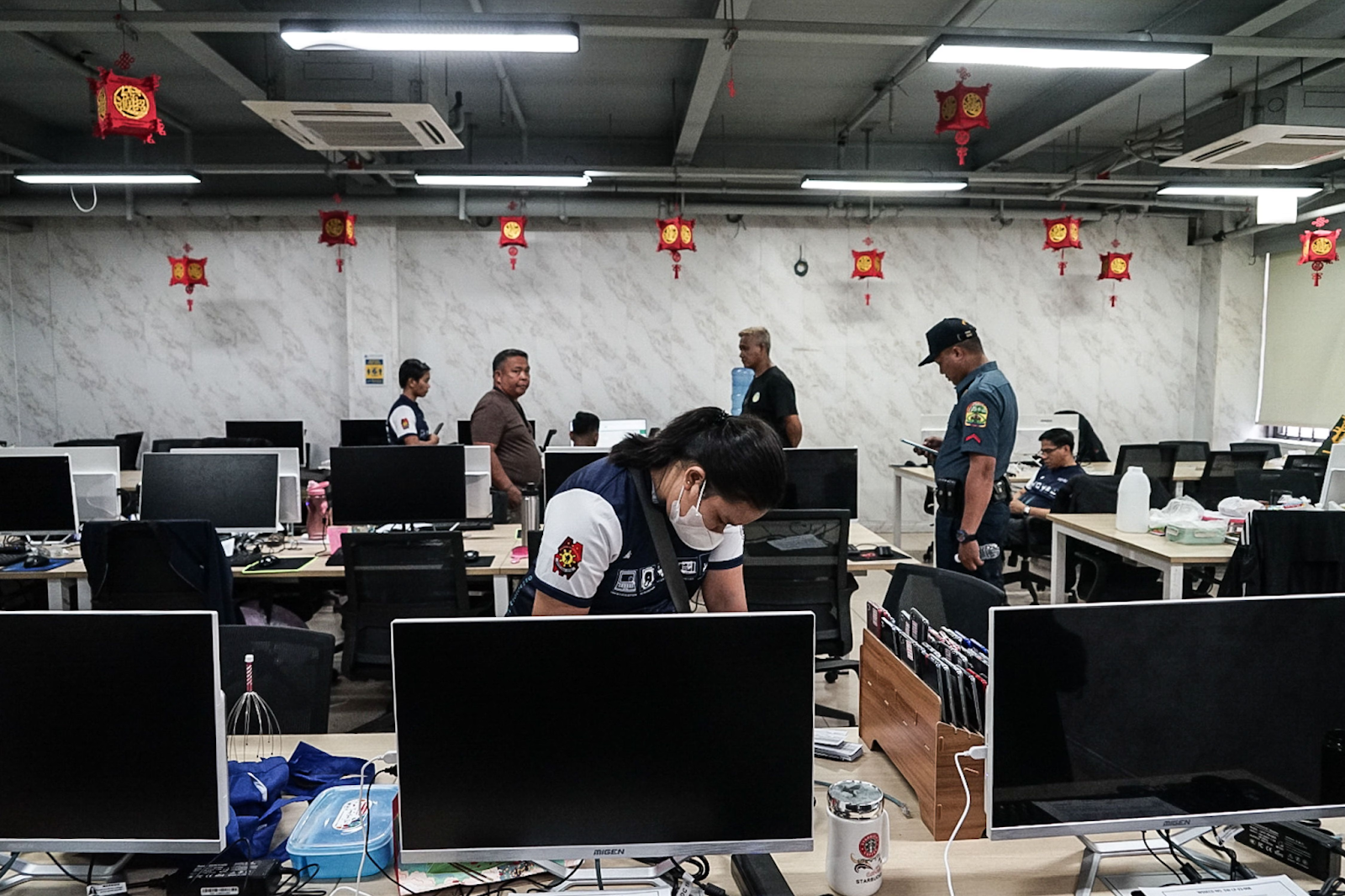
Alice Guo campaigning for the office of Mayor in Bamban, Tarlac in the Philippines. Photo retrieved from her YouTube Channel
As Asia’s oldest democracy, the Philippines has had its share of national controversies over the years. In recent memory, very few of these incidents stand out as much as the case of Alice Guo, the mysterious Chinese national who lied about her identity as a Filipino and managed to briefly become a Mayor of a Philippine municipality. Although a long-winded case involving allegations of state-sponsored spying for China, attempted escapes from the Philippines, and many ongoing court cases of graft and corruption, it is a story that reveals a lot of the vulnerabilities that hide within otherwise stable democracies and how these can be exploited to dramatic effect.
In 2022, Alice Leal Guo ran for Philippine public office and was officially elected as the Mayor of Bamban, a municipality of more than 70,000 residents in the Philippines’ Tarlac province, on a nearly one-percent margin over second-placer Joey Salting. She was young and had little political experience, yet was known to be a successful businesswoman who co-owned or was a major shareholder in at least 11 different companies. Though she was a relative newcomer to the local politics of the region, she had made a generally positive impression on the general public and was relatively well-liked, having notably documented her interactions with locals alongside her personal life on her now-defunct YouTube channel.
In 2024, however, the integrity of her office came under question as the national police raided the Baofu compound, a large 36-facility compound located within the municipality and host to Philippine Offshore Gaming Operation (POGO) Zun Yuan Technology Incorporated, over concerns of fraudulent behavior, human trafficking, and illegal detention of Filipinos and foreign nationals alike. As lawmakers discussed concerns surrounding the existence of illegal POGOs right by her doorstep, questions started to arise about the Mayor’s background and possible involvement in the ordeal, alongside the nature of her citizenship itself.

The Baofu compound in Bamban, Tarlac was raided by Police in 2024 over allegations of human trafficking and scam operations. Photo by Joann Manabat of Rappler
Hearings immediately started exploring Alice Guo’s background as more and more documents or assets like vehicles located within the raided compound were found tied to the Mayor. Public sentiment toward the mayor worsened and suspicions about her identity arose as she delivered vague and often contradictory answers to questions about her upbringing and education, such as that her mother was Filipino when records indicated she was Chinese, or that she was homeschooled by a certain ‘Teacher Rubilyn’ when enrollment forms indicated that she actually studied at a local private high school. On a separate occasion, a self-confessed ‘Chinese spy’ also claimed that the Mayor’s campaign was arranged by the Chinese state security office. Even her very name came into question as records revealed that Alice Guo had identical fingerprints to a certain ‘Guo Hua Ping’, a Chinese national that previously entered the Philippines many years ago.
It became undeniable that Alice Guo was a foreigner who somehow managed to slip under the country’s nose to become a mayor who assisted with illegal POGO operations in her jurisdiction. Before the country could investigate further, however, as if written for the plot of a political drama, authorities could not find Alice Guo anywhere in the country. She had somehow escaped and fled to Malaysia despite multiple checks prohibiting her from leaving the Philippines and her own lawyers insisting she was still in the country. After a nearly two month-long goose chase, Alice Guo was finally arrested by Interpol in Indonesia before promptly being brought back to the Philippines. She now faces multiple charges of graft, qualified human trafficking, tax evasion, and money laundering, among others.
Alice Guo may certainly be the poster child for illegal POGO operations in the Philippines and the underdealings of the industry at large, but her case is definitely not the only one of the largely Chinese-run businesses committing suspicious if not outright illegal behavior. Many similar cases of online scam operations and human trafficking have been documented throughout the country’s various supposed POGO hubs since their rapid expansion starting in 2016 under the presidency of Rodrigo Duterte who relaxed multiple state regulations on the country’s digital gambling policy. At the time, though not a fan of online gambling himself, Duterte argued that they were a significant contributor to the national economy either directly through the licensing fees the industry paid and the jobs they created or indirectly through the living expenses paid by POGO workers that supported local economies. Duterte’s support of the POGO industry was so strong that his administration even downplayed allegations that several of these businesses may have been used for state espionage given their proximity to many Filipino military camps, claiming that it was natural for countries to spy on each other. In effect, the influence of these offshore operations on Philippine politics has been one of the many ways in which the country’s democracy has been chipped away and eroded in subtle ways over the years.
The idea that POGOs are significant to the Philippine economy holds some weight, as 2024 national estimates placed the total economic contribution of POGOs in the Philippines at PHP 166.49 billion (~2.9 billion USD). However, those same estimates also argued that the economic costs of the industry were valued at PHP 265.74 billion (~4.6 billion USD) when factoring in the reputational risks involved in the country’s hosting of POGOs. Most notable among the critics of the Duterte government’s association with gambling operations is the industry’s primary country of origin itself: The People’s Republic of China, where gambling is banned in the mainland and officials have previously labeled POGOs “the most dangerous tumor in modern society.”

Police raid and seize equipment used in an allegedly illegal POGO operation in Las Pinas City. Photo retrieved from ABS-CBN.
Despite the heavy costs involved and their links to organized crime networks, POGOs thrived under the Duterte administration and continued to do so even as Marcos Jr. replaced him. However, in response to the case of Alice Guo and other allegations of illegal activity in other POGO hubs around the country, Marcos publicly called for a national ban on all of the industry’s operations during his 2024 State of the Nation Address in July, before signing an executive order that effectively implemented such a ban later that year. The president specifically cited growing national security concerns as a key factor in justifying the decision to do so. Despite the nationwide ban, however, several POGOs and the associates behind them have continued to operate illegally within the country.
The case of Alice Guo has highlighted how illicit business interests can damage the quality of democracy. Though the case of a Chinese national being elected into public office may be extreme, it nevertheless represents the vulnerability of Philippine democracy to manipulation by outside interests. It remains to be seen whether Marcos’ efforts at cracking down on the industry will pay off. Regardless of whether he succeeds, the drama and spectacle caused by the case of Alice Guo has ensured that the whole world will be watching now.

I was unaware of the case involving Alice Guo, who posed as a citizen of the Philippines. Although it sounds like something out of a movie, this case highlights how vulnerable even a seemingly strong democracy can be. In the United States, incidents like this would fuel xenophobic and anti-immigrant rhetoric even further.
This is really an interesting read, Jaime! While the story of Alice Guo perpetuated a lot of drama and even involved actors, it’s surprising how a foreigner with a questionable background was able to become the mayor of Bamban, Tarlac. This goes to show the serious flaws in the country’s political system, where people can easily slip through the cracks of the weak rules that the Philippines has.
This issue is actually something to be worried about. However, given the weaknesses of the Philippine government, it seems that they are not too troubled about the issue. The slow response and the inability to prevent someone like Guo from holding office point out a bigger problem in the country’s governance and enforcement. In this case, this issue is a real threat to the integrity of the country’s democracy.
This write-up really highlights how important it is for the government to step up and strengthen its systems away from any outside interventions.
The article explains how Alice Gou, a suspected Chinese spy, briefly became mayor in the Philippines and how former president Duterte’s tolerance of illegal POGO businesses generated revenue while undermining governance. It highlights the vulnerability of democratic institutions when leaders sacrifice checks and balances horizontally for short-term gains. Specifically, Duterte ignored warnings and downplayed allegations, enabling foreign businesses and espionage activities to exploit weak governance and expand near sensitive security sites under the guise of economic benefit.